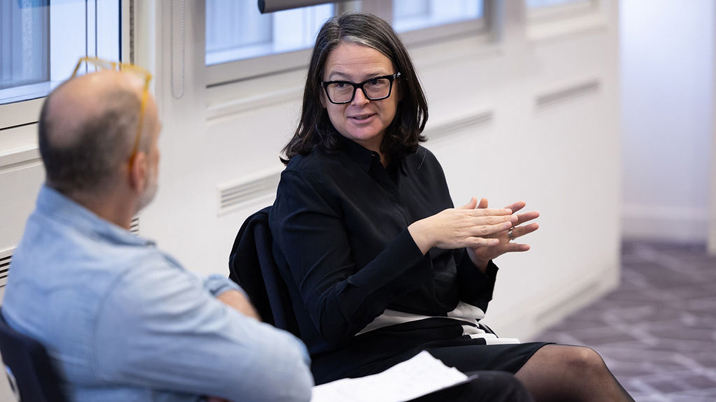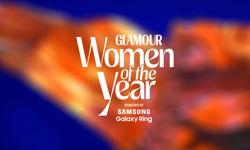
Hearst UK CEO Katie Vanneck-Smith really does not like the way some publishers are describing their editorial teams and what they produce. She objects to the trend towards ‘content’ and ‘content managers’. That much she made clear when she was interviewed by New European Founder Matt Kelly at November’s Independent Publisher Conference in London. Does she have a point? What’s wrong with ‘content’? It seems such an innocuous little word. Does it matter what we choose to call it?
Like Vanneck-Smith, I think it does. It has always jarred with me too. My gut instinct has been to avoid it where I could, but am finding that ever more difficult. I know I’m not alone amongst editors. Why is that? It’s because we feel that it doesn’t do justice to the work that our journalists do. As a descriptor, it feels bland or dismissive.
It’s a word that has always been favoured more by publishers and marketers than editors. For a while, you couldn’t go to a publishing conference without seeing a publisher put a slide up with the heading, ‘Content is King’, with or without a crown drawn over the letter K.
Focus group research has always told publishers that readers preferred the stuff between the ads than the ads themselves or the container it all came in. So, it was a somewhat puzzling slogan. These days, it will just elicit a groan or an eye-roll.
But, while a truism, it was at least positive for ‘content’. Other contexts feel more negative. I recall a publisher talking about setting up the right systems and processes to be able to “squirt content wherever we like” into one channel or another – like it was some kind of filler from a mastic gun, not really worth much in itself. This also creates the impression that all content is pretty much the same – it’s just ‘content’. Yet there is good research and there’s poor writing; there’s good ideas and there’s poor design. It’s all content. But it’s not all created equal.
If not ‘content’, then what?
Is there an alternative? I remember a fellow editor introducing his business as that of what his clients like to call ‘content’ but what he calls ‘words and pictures’. I liked the sentiment. Equally, you could use ‘broadcast’, ‘video’, ‘graphics’ or many other forms of creative expression. In journalism, we should always prefer the specific to the general so, yes, we should do that whenever we can. But these days, the list of outputs is long; sometimes we need one word or phrase that encompasses what a journalist, editor or brand produces for its readers, viewers or listeners.
Vanneck-Smith prefers simply ‘journalism’ over ‘content’ and I’d prefer ‘editor’ over ‘content manager’. But content covers more than journalism. Even in the editorial pages of a magazine, you might have crosswords, horoscopes, fiction (deliberate not accidental). What about the letters page or online comment? What about anything generated by AI? These elements aren’t strictly journalism and they’re not advertising but they are content. They may be better termed ‘editorial’ which is a good alternative, but even that doesn’t cover as much as ‘content’.
Some publishing has zero journalism. What about peer-reviewed research papers? None of that’s journalism, but it sure is original and valuable content. That’s why we’ve all accepted ‘content management system’ as a term. It seems fair and accurate to describe systems designed for such a wide range of well, content.
What about ‘stories’? I like this. It avoids the grey, bland, homogenous filler goo feel of ‘content’. There’s some excitement and more emotional value to the word ‘stories’. Unlike ‘content’ we all think we might like to read ‘stories’. Like they may matter, make a difference, elicit a response or even excite. It doesn’t say ‘research and balance’ in the way journalism implies and its meaning has become broader and diluted. These days, even brands and their advertising like to tell ‘stories’. It’s a long way from a story for the news desk.
Beyond the editorial pages, it gets even trickier. Content can encompass the words for a website, not necessarily a publishing website. And it can cover some forms of advertising. It’s not editorial content and it is content marketing, but it is all content. This is one reason I have, reluctantly but necessarily, come to accept ‘content’ and that I may be a ‘content manager’. There, I never thought I’d say it. But there’s another, stronger reason for learning to love ‘content’.
‘Stories’ is good, ‘story-teller’ sounds a bit fluffy but alright. But no one searches for ‘stories manager’ or ‘stories writer’. They might search for journalist. But many publishers or marketers, those most likely to employ me, will search for ‘content director’ or ‘content strategy’ or even ‘content guru’ – and I am, of course, all those things.
Content has become so widely used that I can no longer avoid it. Now I’m looking for work, I want to be found. That means using the right language. For better or worse, ‘content’ and ‘content manager’ have become that language. It’s become the SEO for editorial work.
I wonder if I’ve managed that here with 33 mentions of ‘content’ – sorry make that 34. Hopefully that’s how you found this piece of content. And this content manager.
This article was first published in InPublishing magazine. If you would like to be added to the free mailing list to receive the magazine, please register here.












